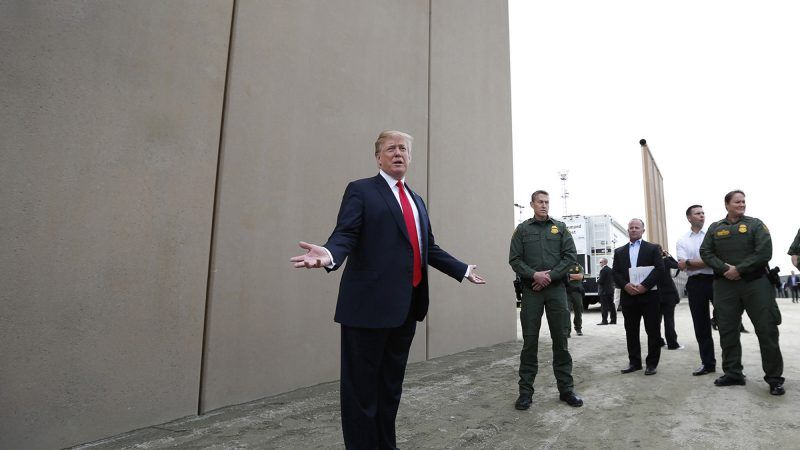Republican Presidential Nomination
Trump Prepares Potemkin Convention
Even as impeachment poll numbers rise, the GOP gleefully stifles any hint of internal dissent.

According to multiple polls released this week, a clear majority of Americans support the House of Representatives' impeachment inquiry into President Donald Trump, and around 50 percent favor his outright removal after a Senate trial. Even among Republicans, Washington Post polls indicate, support for the inquiry is up 21 percentage points since July.
So how is the GOP dealing with this erosion of enthusiasm among rank-and-file Republicans? By bragging to reporters about all the ways that internal political competition and dissent is being squashed.
Not content with the unprecedented merger between the Republican National Committee and the Trump re-election campaign, nor the level of nationally driven state-primary cancellations unseen from an incumbent since at least George H.W. Bush, the committee to re-elect this president is bragging to reporters about pressuring 37 states to make rule changes that will be even "more impactful" than nixing elections.
"This is about the general election," an unnamed Trump campaign official said on a conference call, insisting that the moves—for instance, changing state delegate-allocations to winner-take-all—are "not being done from a position of weakness," but rather to make sure that the 2020 Republican National Convention "is a four-day television commercial for 300 million Americans, and not an internal debate among a few thousand activists."
The pathway for a primary challenge to Trump, the official reportedly asserted, "has already been closed."
Five states—Alaska, Nevada, Kansas, Arizona, and South Carolina—have pre-emptively canceled their primaries, taking nearly 8 percent of the total GOP delegate count off the table. This despite primary challenges from former Massachusetts Gov. Bill Weld and former Reps. Joe Walsh (Ill.) and Mark Sanford (S.C.), who together penned a Washington Post op-ed last month condemning the consolidation as the work of "cowards." Sanford also served as a Republican governor of South Carolina, and Weld ran for vice president in 2016 with the Libertarian Party.
"If a party stands for nothing but reelection," the three men wrote, "it indeed stands for nothing."
Former Rep. Bob Inglis (R–S.C.) filed suit last week to challenge the South Carolina GOP's decision, arguing that "the cancellation of the primary by a small handful of party insiders denied me—and every other South Carolina Republican—our voice in defining what the Republican Party is and who it supports." Yesterday, Inglis and his legal partners filed a preliminary injunction that would force the election to go on as previously planned.
Despite the rising support for impeachment, there is little indication thus far that Trump would do anything but rout his competition in a completely fair fight. His latest Gallup approval rating among Republicans was down four percentage points but still at 87 percent, higher than it was as recently as last December. His RealClearPolitics polling average versus what he has derisively if hilariously called "the Three Stooges" is 85.5 percent to a combined 7.3 percent. And while we await what are likely to be pathetic third-quarter fundraising numbers for the GOP Davids, President Goliath just announced another $125 million haul, putting his total for 2019 at $308 million.
If the 2020 Republican National Convention in Charlotte is shaping up to be a replay of 1972—when an incumbent president who was dogged by persistent scandal and a mostly hostile press corps put on a jarring display of unanimity even in the presence of two primary challengers and chaotic protests outside—hopefully we'll at least get some decent documentaries out of it.


Show Comments (142)